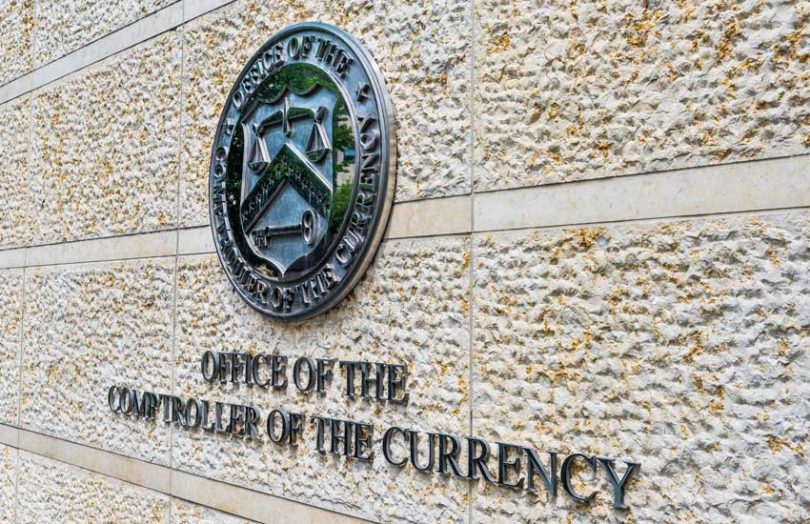Yesterday, the U.S. Office of the Comptroller of the Currency (OCC), the Treasury’s banking regulator arm, issued an interpretive letter that says banks can participate in stablecoin networks by operating validator nodes and can process stablecoin based payments.
“The President’s Working Group on Financial Markets recently articulated a strong framework for ushering in an era of stablecoin-based financial infrastructure, identifying important risks while allowing those risks to be managed in a technology-agnostic way,” said Acting Comptroller of the Currency Brian P. Brooks. “Our letter removes any legal uncertainty about the authority of banks to connect to blockchains as validator nodes and thereby transact stablecoin payments on behalf of customers who are increasingly demanding the speed, efficiency, interoperability, and low cost associated with these products.”
Specifically, the letter says that banks can “validate, store, and record payments transactions by serving as a node” on a stablecoin network.
This is at least the fourth recent action from the OCC relating to cryptocurrency and stablecoins. Brooks, the former in-house legal counsel at cryptocurrency exchange Coinbase, previously published letters allowing banks to custody digital assets and hold stabelcoin reserves and outlined plans to offer special-purpose ‘payments’ charters. Brooks has made it clear that he believes the deposit-taking function of banks will not survive blockchain decentralization.
Not everyone is happy with the OCC’s moves. Some members of Congress have introduced the STABLE bill to limit stablecoin issuance to banks and have urged the OCC to consult regulators on its actions.
On the other side of the ocean, the European Central Bank (ECB) has outlined the risks of stabelcoins being used for mainstream payments. It’s worried that a “run” on a stablecoin that achieves real scale in payments could destabilize the entire financial system. Tim Swanson, an advisor to banking blockchain settlement platform Fnality, outlined some of his reservations about stablecoins.
In terms of banks, JP Morgan is perhaps the most advanced in stablecoins with its JPM Coin. It already has an unnamed client in production and in Singapore, it is using the JPM Coin to commercialize a wholesale multi-currency payment infrastructure. The project has the endorsement of the Monetary Authority of Singapore (MAS) and is in partnership with DBS Bank and state-backed investment fund Temasek.






